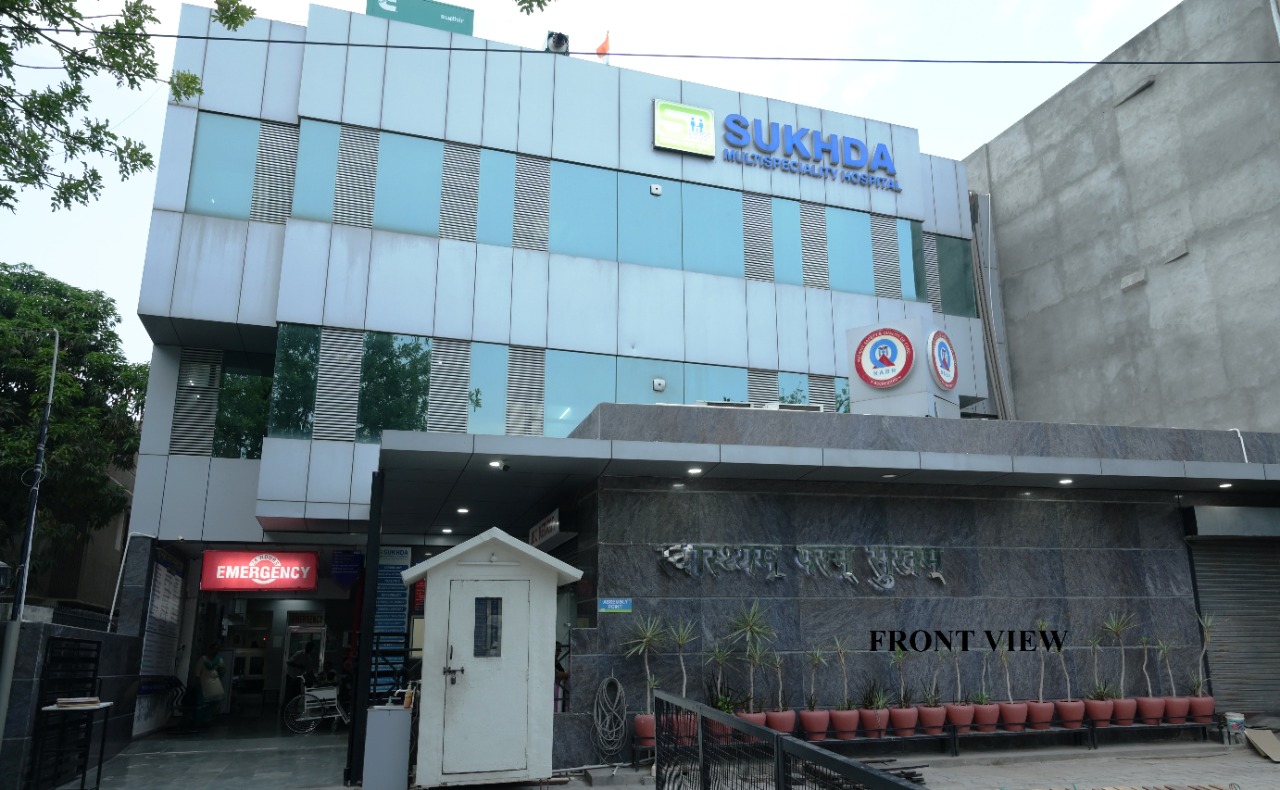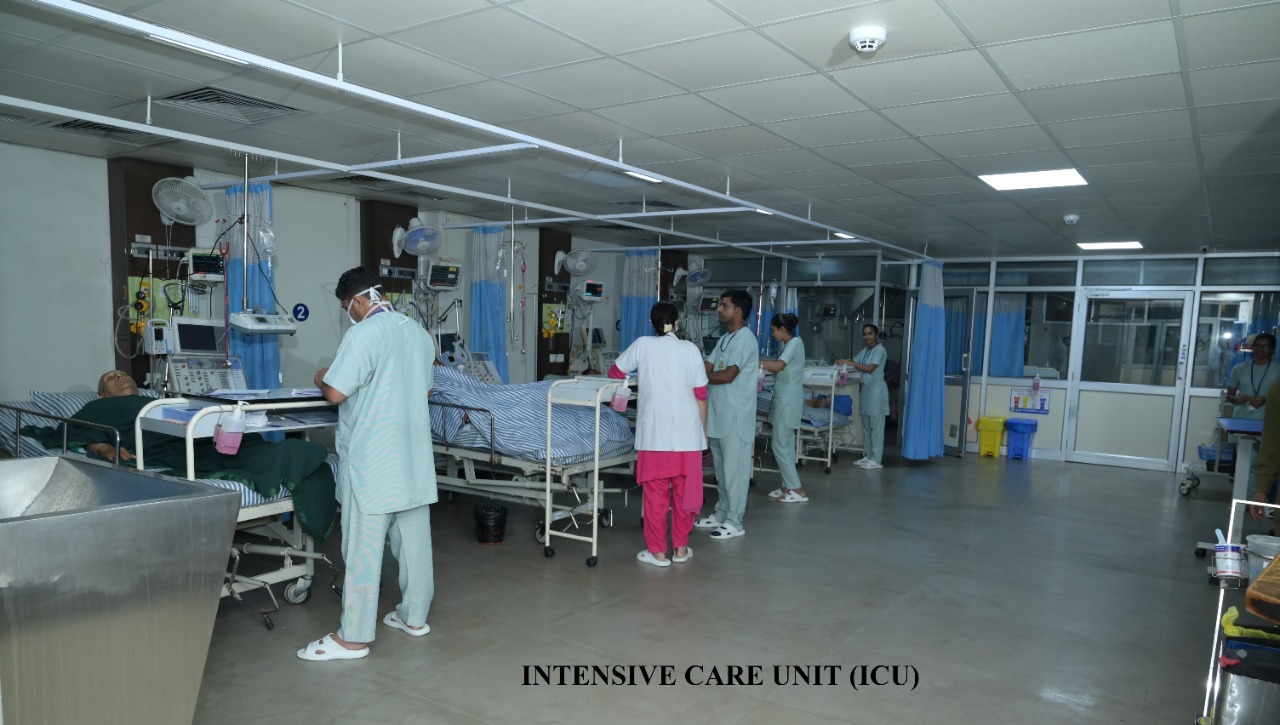Sukhda Hospitals
Strengthening last mile Healthcare Infrastructure

CURRENT IMPACT
As on August 2023
6
Spoke centers established
5000+
patients provided with consultations

Geographical Focus
- Hisar, Haryana

Potential Impact
- Providing access to healthcare facilities to more than
4 lakh
population

Samridh support
With SAMRIDH’s financial support, Sukhda hospitals aim to cover infrastructure development at the main hub. Additional funding will be obtained from the bank in the form of). With additional funding required, SAMRIDH will obtain actual leverage of ~2.6x over its funding support.
Further in the coming 18 months, the entity will raise additional debt funds of INR 4 Cr (USD 0.6 Mn) to cover for establishment and infrastructure cost of 2 mini hubs. With this additional funding, SAMRIDH will obtain estimated leverage of 5x over its support.
Background
- There is currently a shortfall in health facilities: 18% at the Sub-Centre level, 22% at the PHC level, and 30% at the CHC level.
- As of 31st March 2019, 9.6% PHCs are without a doctor, 33.4% are without a Lab Technician and 23.9% are without a pharmacist, and at CHCs, there is a shortfall of 81.8% of specialists.
There is a large-scale mismatch of healthcare infrastructure available to patients in rural and urban India as about 80% of doctors, and 70% of total hospital beds in India are concentrated in urban areas serving only 28% of the population. Access to primary and secondary healthcare, especially at the last mile &/ or for the underserved/remote population has always been a huge challenge in India. Seventy percent of the Indian population lives in the rural areas, where there are just 20% doctors, 25% dispensaries, 40% hospitals, and over 30% of rural patients in India travel >30 Km for accessing Primary Healthcare, and it’s worse when it comes to secondary and tertiary care.
These PHCs have not been able to enroll Ayushman Bharat beneficiaries at Point of Care due to a lack of IT and manpower support. Travel to urban centers is costly, both in terms of out-of-pocket expenditure (OOPE) for travel and stay as well as high consultation costs. There is limited knowledge of social insurance schemes such as Ayushman Bharat which strive to decrease the financial burden on beneficiaries.
COVID-19 has further exacerbated the need to strengthen primary healthcare across the country. Potentially life-saving emergencies and critical and surgical care interventions are still disrupted as a result of indirect consequences of the pandemic.
18%
Shortfall at the Sub-Centre level, 22% at the PHC level, and 30% at the CHC level currently exist in health facilities.
9.6%
Of PHCs are without a doctor, 33.4% are without a Lab Technician, and 23.9% are without a pharmacist, as of 31st March 2019. Additionally, there is an 81.8% shortfall of specialists at CHCs.
There is a large-scale mismatch of healthcare infrastructure available to patients in rural and urban India as about 80% of doctors, and 70% of total hospital beds in India are concentrated in urban areas serving only 28% of the population. Access to primary and secondary healthcare, especially at the last mile &/ or for the underserved/remote population has always been a huge challenge in India. Seventy percent of the Indian population lives in the rural areas, where there are just 20% doctors, 25% dispensaries, 40% hospitals, and over 30% of rural patients in India travel >30 Km for accessing Primary Healthcare, and it’s worse when it comes to secondary and tertiary care.
These PHCs have not been able to enroll Ayushman Bharat beneficiaries at Point of Care due to a lack of IT and manpower support. Travel to urban centers is costly, both in terms of out-of-pocket expenditure (OOPE) for travel and stay as well as high consultation costs. There is limited knowledge of social insurance schemes such as Ayushman Bharat which strive to decrease the financial burden on beneficiaries.
COVID-19 has further exacerbated the need to strengthen primary healthcare across the country. Potentially life-saving emergencies and critical and surgical care interventions are still disrupted as a result of indirect consequences of the pandemic.


SUKHDA Connect for last mile healthcare delivery
SUKHDA Connect, a Hub and spoke model for integrated medicine, aims to strengthen India’s primary healthcare and introduce potentially life saving technology under critical and surgical care in low access and low-income locations starting with Hisar. Sukhda hospital has been providing affordable preventative primary healthcare for the last 19 years, what started as a 20-bed facility now houses over 120 beds. Using Sukhda hospital as the main hub, Sukhda aims to create multiple “spokes” which stem out of the hub within a 100 km radius. These “spokes” will each be equipped with quality yet affordable healthcare services while also creating a community of physicians and specialists for teleconsultation on tougher cases. Each spoke will be connected to the hub and will work through the established communication channels of telemedicine, diagnostics, etc.
Key Stakeholders


